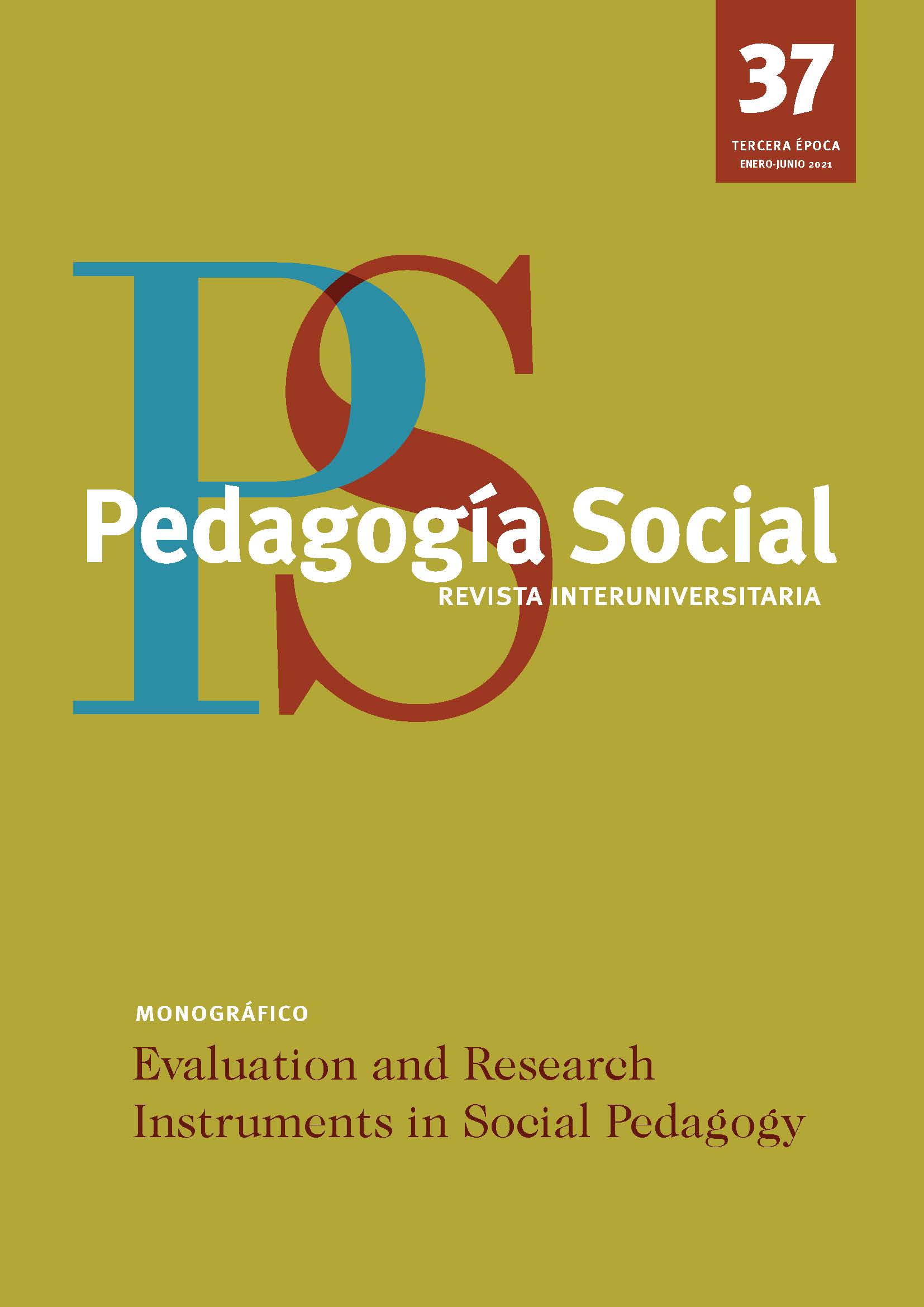Contributions of Martha Nussbaum and Amartya Sen to the construction of an ethical dimension in the socio-educational relationship: a systematic review
DOI:
https://doi.org/10.7179/PSRI_2021.37.07Keywords:
ethics, dignity, social justice, socioeducational relationshipAbstract
The development of an applied ethics theory to social education in the Spanish context is one of the challenges of social pedagogy. From this premise, the purpose of the study is to analyse some theoretical foundations taken from relevant authors in order to develop the basis of an ethical dimension applicable to socio-educational practices. The Capabilities Approach Theory proposed by Amartya Sen and Martha Nussbaum is analysed throughout this work. Three original works of Sen and Nussbaum and reviews from ethics and education fields of other authors that address the Capabilities Approach were analysed through an inductive coding process using Atlas.ti software. The main results highlight some key elements and helped us to establish some socio-educational principles based on integral development, agency, participation, diversity, and freedom as some basic central axis that assure an ethical socio-educational relationship in compliance with human dignity.
Downloads
Downloads
Published
How to Cite
Issue
Section
License
Copyright (c) 2021 Pedagogía Social. Revista Interuniversitaria

This work is licensed under a Creative Commons Attribution-NonCommercial-ShareAlike 4.0 International License.
Copyright and right to archive
The published version of the articles can be self-archived by their authors in open access institutional and thematic repositories. However, Pedagogía Social. Revista Interuniversitaria must authorize partial or global reutilisation on new papers or publications.
Published papers must be cited including the title of the journal Pedagogía Social. Revista Interuniversitaria, issue, pages and year of publication
Ethical responsibilities
Pedagogía Social. Revista Interuniversitaria does not accept any material that has been previously published in other documents or publications. Authors are responsible for obtaining the required permissions for partial or global reproduction any material from other publications, and to correctly quote its origin.
Pedagogía Social. Revista Interuniversitaria is obliged to detect and report fraudulent practices.
Only those who have intellectually contribute to the development of the paper must appear as authors.
The journal expects authors to declare any commercial partnership that might entail a conflict of interest with respect to the submitted article.
Authors must mention in the article, preferably in the “methodology” section, that the procedures used during the samplings and controls have been made after getting informed consent.
The journal will not use any received contribution in a way other than the goals described in these guidelines.
Copyright Notice
© Pedagogía Social. Revista Interuniversitaria. Papers published in both the printed and online versions of this Journal are property of Pedagogia Social. Revista Interuniversitaria, being required to cite the source in any partial or total reproduction.
Unless otherwise stated, all content of this electronic journal is distributed under "Creative Commons Attribution-Non commercial 3.0 Spain" (CC-by-nc) license for use and distribution. The informative version and the legal text of this license is available here. This has to be expressly stated in this way when necessary.






